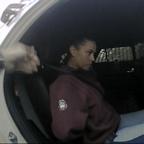Supreme Court's liberal justices warn of 'law-free zone'
While both the conservative and liberal Supreme Court justices agreed its ruling has far-reaching implications for the future of the presidency, Justice Sonia Sotomayor said the impact would be chilling.
"Looking beyond the fate of this particular prosecution, the long-term consequences of today's decision are stark," she wrote. "The Court effectively creates a law-free zone around the President, upsetting the status quo that has existed since the Founding," she said in her dissent.
Sotomayor was joined in her dissent by Justices Elena Kagan and Ketanji Brown Jackson.

Jackson described the majority's threshold for deciding immunity on a case-by-case basis as complicated and convoluted. The model they laid out, she said, could leave presidents feeling more emboldened to act unlawfully.
"Having now cast the shadow of doubt over when -- if ever -- a former President will be subject to criminal liability for any criminal conduct he engages in while on duty, the majority incentivizes all future Presidents to cross the line of criminality while in office, knowing that unless they act 'manifestly or palpably beyond [their] authority, they will be presumed above prosecution and punishment alike," she wrote.

Chief Justice John Roberts pushed back against the liberal dissents, saying they "strike a tone of chilling doom that is wholly disproportionate to what the Court actually does today."
"Like everyone else, the President is subject to prosecution in his unofficial capacity. But unlike anyone else, the President is a branch of government, and the Constitution vests in him sweeping powers and duties. Accounting for that reality -- and ensuring that the President may exercise those powers forcefully, as the Framers anticipated he would—does not place him above the law; it preserves the basic structure of the Constitution from which that law derives."
-ABC News' Alexandra Hutzler




